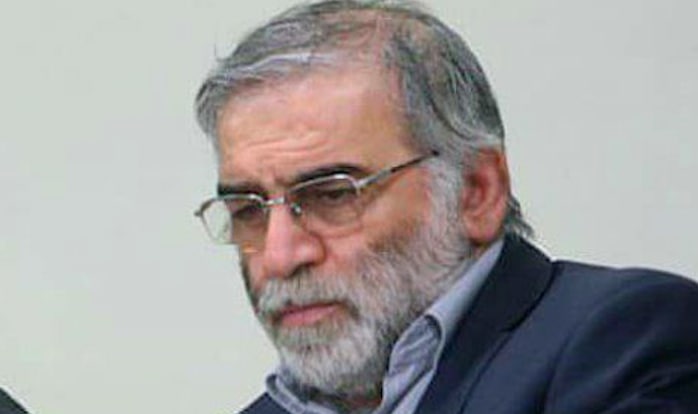A senior scientist linked to the Iranian nuclear program, Mohsen Fakhrizadeh-Mahabadi, was assassinated in Damavand, east of Tehran on Friday, multiple media outlets reported.
Terrorists murdered an eminent Iranian scientist today. This cowardice—with serious indications of Israeli role—shows desperate warmongering of perpetrators
Iran calls on int'l community—and especially EU—to end their shameful double standards & condemn this act of state terror.
— Javad Zarif (@JZarif) November 27, 2020
According to reports, medics’ attempts to resuscitate Fakhrizadeh were unsuccessful. Iranian social media users have shared photos and videos from the ‘crime scene’, claiming they heard an explosion and a barrage of fire in the area.
According to the reports, the assassins had clashed with the bodyguard of the nuclear scientist; repeated gunshots were heard.
Soon after the reports of assassination, the spokesman for the Atomic Energy Organization of Iran had said that all scientists in the country’s nuclear industry were safe and in good health.
However, Iran Revolutionary Guards Commander, Hossein Salami, took to Twitter to condemn the assassination of the high-profile nuclear scientist, which he believes, is being done to prevent Iran from gaining access to modern science.
ترور دانشمندان هستهای آشکارترین تقابل خشن نظام سلطه برای جلوگیری از دستیابی ما به علوم مدرن است.
— حسین سلامی (@salamy_ir) November 27, 2020
“The assassination of the nuclear scientist is the most obvious violent confrontation of the domination system to prevent us from gaining access to modern science,” he wrote on Twitter.
No one has yet claimed responsibility for the alleged murder of Fakhrizadeh, who was also a professor of physics at the Imam Hussein University and a senior scientist at the Iranian Ministry of Defense and Armed Forces Logistics.

Till 2018, no photograph had ever existed of him, as per Al Arabiya. After the killings of four nuclear scientists between 2010 and 2012, a protective shield of secrecy and security had been thrown around him, in an effort to protect him against Israeli assassins.
The Al Arabiya report says that it was between 1988 and 1994, that 1,600 Telex messages had been intercepted by Western intelligence operatives, which eventually revealed beyond doubt that the Iranian regime was running a secret program to develop nuclear weapons, which ran alongside a program to develop ballistic missiles to carry them.
Fakhrizadeh led Iran’s so-called “Amad,” or “Hope” program, which the International Atomic Energy Agency says, ended in the early 2000s.
Israel and the West have alleged it was a military operation looking at the feasibility of building a nuclear weapon in Iran. Tehran has long maintained its nuclear program is peaceful.




